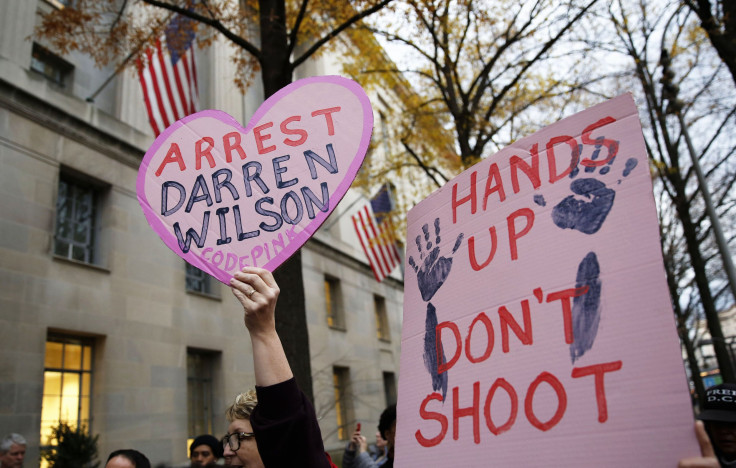Michael Brown Shooting: 6 Months Since Unarmed Teen's Death, Activists Sue To Restore Trust With Authorities

It’s been half a year since a white police officer shot and killed an unarmed, black Missouri teen, sparking nationwide protests and calls for policing reforms from federal officials. Michael Brown, the 18-year-old who fatally encountered former Ferguson, Missouri, police officer Darren Wilson six months ago Monday, became a symbol of widespread anger and distrust over the way minorities and the poor are treated by the American justice system. Tributes to Brown and other perceived victims of police brutality were expected throughout this week. A Tumblr page tracking activists’ response to Brown’s shooting listed at least three events Monday.
On Sunday, a group of 15 residents in and around the St. Louis area filed two lawsuits against Ferguson and another nearby suburb, alleging that the cities have created unconstitutional modern-day debtors’ prisons that punish the impoverished when they cannot pay traffic tickets and other municipal violations, the New York Times reported. In 2014, Ferguson authorities issued an average of more than 3.6 arrest warrants per household and almost 2.2 arrest warrants for every adult, mostly for unpaid ticket debts, according to the lawsuit against that city. The suits were filed in the United States District Court for the Eastern District of Missouri. Many demonstrators have cited officials’ ticket debt practices as a source of community distrust in law enforcement authorities.
Also on Sunday, two performances at the 57th annual Grammy Awards made references to Brown, as the music awards ceremony saluted “Selma,” the movie documenting Martin Luther King Jr.’s efforts to fight voting discrimination. Singers Beyoncé and John Legend and rapper Common closed the show with performances of “Take My Hand, Precious Lord” and “Glory” from the film’s soundtrack, Variety reported. During his performance, Common raised his hands in the air symbolizing the “hands up, don’t shoot” pose that protesters have adopted nationwide in reference to Brown's alleged stance when he was shot.
© Copyright IBTimes 2025. All rights reserved.






















